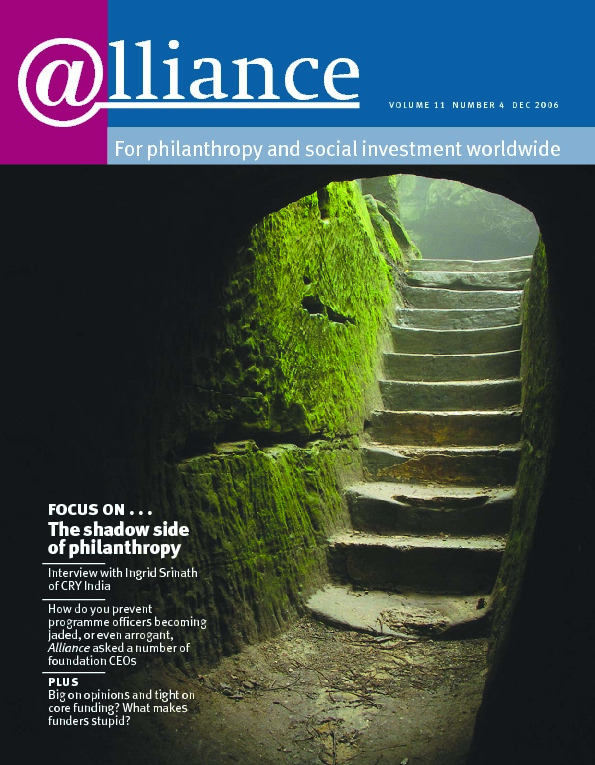I was intrigued by your recent article on social investments. This is an area where my firm, FSG Social Impact Advisors, is presently conducting extensive research.
It should not be surprising that investment advisers shy away from recommending social investments. It would add to the cost and complexity of their operations and, like any other business, they won’t add cost without strong client demand and the willingness to pay a premium. It is far preferable for them to warn against the difficulties of social investing than to commit the resources that would enable them to advise their charitable clients about it.
Yet the fundamental question – whether social investments offer higher risks or lower returns – remains unanswered. The advisers quoted assert that conclusions about financial returns cannot be drawn because social investments are so varied. We disagree. In our current research, we have looked at more than 2,500 social investments by US foundations. While we do not yet have the full results (the report will be published by March 2007), we have found many examples of social investments that offer market-rate returns without greater risk. The F B Heron Foundation, for example, has more than 25 per cent of its endowment in a diverse portfolio of social investments, achieving returns that match or exceed market rates.
In fact, we have seen a recent growth of interest in social investment, not only among foundations on both sides of the Atlantic but among other investors and even corporations. Exemplifying this trend, former Goldman Sachs partner David Blood and former US Vice-President Al Gore have started a UK-based investment firm, Generation, that selects investments based on social and environmental screens with the express aim of achieving higher financial returns. In a forthcoming Harvard Business Review article (December 2006), Professor Michael Porter and I suggest that adding a social dimension provides an important new source of competitive advantage for a company.
We are entering a new era of social investing in which the traditional dichotomy between those who make money and those who do good no longer applies. It is no simple matter to bridge this divide. Advisers won’t recommend social investments until clients demand it; clients won’t demand it until it is profitable; it won’t be profitable until attractive social investments emerge; investments won’t emerge until there is capital available to fund them; and capital won’t be available until advisers recommend it. It will take courage and leadership to break this cycle, but there are signs that it is already happening.
Mark R Kramer
Managing Director, FSG Social Impact Advisors and Senior Fellow, John F Kennedy School of Government, Harvard University





Comments (0)